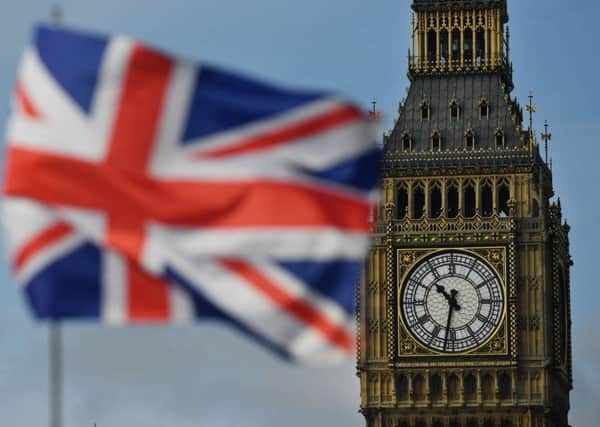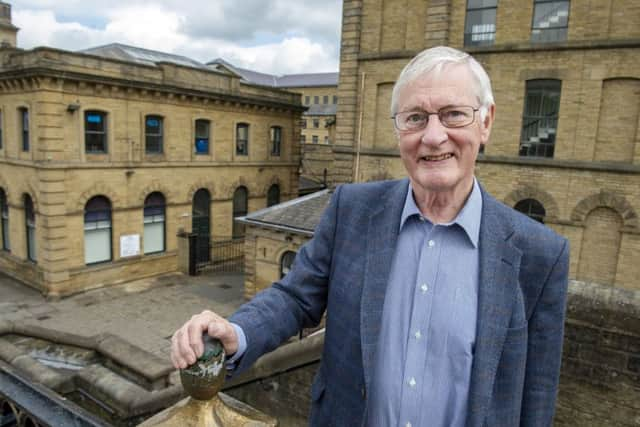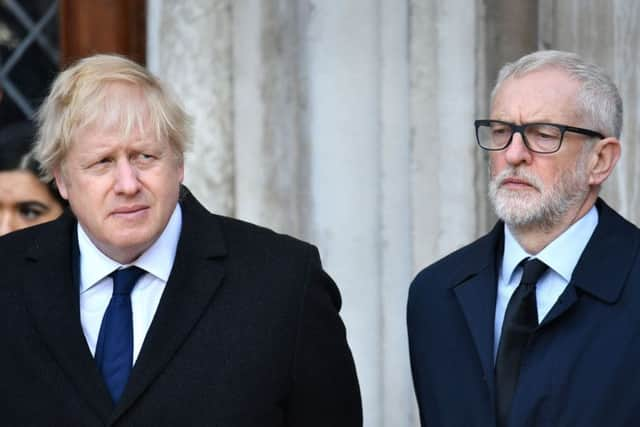General election is not a spectator sport; help us change our politics for the better – William Wallace


There’s a bitterness in popular reactions to those with opposing views. Politicians as a whole are now even more unpopular than bankers. Politics looks, to many people, like a professional game played in Westminster, far away from the needs and concerns of ordinary voters.
Advertisement
Hide AdAdvertisement
Hide AdThe failure to resolve divisions over Brexit has contributed to this embittered disillusion. But the problems were there before the 2016 Referendum, and popular grievances lie deeper than that. Our two major parties have been internally divided for decades, held together only by the imperatives of our electoral system.


Let’s learn from murder of my sister Jo Cox and keep the general election civilised – Kim Leadbeater
Local government, its elected representatives closest to voters, was rationalised into large units in the 1970s, with powers and budgets slashed over the past 20 years. Local communities have weakened. Internet instant news and social media present snapshots of issues, rather than reasoned arguments.
Advertisement
Hide AdAdvertisement
Hide AdFewer British citizens play any active part in political life than their parents or grandparents. The Conservative Party had over two million members in the 1950s. Now it’s a centralised professional organisation, generously funded by rich donors, including offshore financiers, and even wealthy Russians resident in London.


These pay for the Australian ‘political consultants’ master-minding the current campaign, and for the mailings and data-gathering that its small and elderly membership can no longer provide. Labour has welcomed a surge of new and younger members in the past few years, though it is still heavily dependent on trade union funding. The Liberal Democrats have doubled our membership since the referendum, but lack any institutionalised financial support.
Britain’s crisis of democracy is not unique. The collapse of large-scale industry, with the long-term employment it provided, has left families and communities insecure.
The national solidarity which the older generation recall from the Second World War, and the struggle to rebuild after the war, seems threatened by social diversity, by children moving away and immigrants arriving.
Advertisement
Hide AdAdvertisement
Hide AdRight-wing populists in France, Italy and Germany have attacked the necessary compromises of democratic government. President Trump won by attacking Congress, judges, and the mainstream media, and by calling on ‘alternative facts’ to replace the evidence on which effective government is based.
Democracies can die. The Hungarian Prime Minister has coined the phrase ‘illiberal democracy’ to describe the regime he is building, which gives contracts to government supporters, dominates the media, and has intimidated the opposition and the judges. President Erdogan of Turkey has purged the judiciary and the armed forces, and imprisoned many journalists and university teachers.
It’s easier for such governments to act, without worrying about criticism, parliamentary accountability or judicial challenge. But power corrupts, and corruption benefits the regime’s friends while those without influence are left behind. The Hungarian and Turkish leaders distract their publics by rousing them against foreign threats, from terrorists to immigrants to the European Union. ‘Build the Wall’, President Trump’s anti-Mexican campaign cry, and ‘Take Back Control’, Boris Johnson’s promise in the referendum campaign, follow a similar path: they offer seductively simple answers to grievances that have far more complicated causes.
Winston Churchill once declared to the House of Commons that “democracy is the worst form of government, except all those other forms that have been tried from time to time”. Demonstrators risking their lives in Hong Kong, Tehran and Algiers can tell us what happens when elections are rigged when the rule of law is undermined, and there’s no way to hold those in power, or their friends, to account. Better to tackle the weaknesses of British democracy than to yield to the attractions of strong men and strong government.
Advertisement
Hide AdAdvertisement
Hide AdBoris Johnson is calling for a clear majority to provide strong government under his leadership, and avoid further Parliamentary debate. He suspended Parliament in September and attacked the Supreme Court when it overruled his decision. Yet the Conservatives won a clear majority in 2015, only to fall into opposing factions in the referendum campaign and after. His simple promise now – to ‘Get Brexit Done’ – lacks content or detail on how to deliver without damage to our economy, our public services or our place in the world. Government is a complicated business, not best entrusted to someone who drew laughter from a TV audience when he talked about his commitment to truth.
So we have to tackle the failings of British democracy. We must move to a more open voting system to reflect the diversity of political views. We must revive local government. We need a stronger Parliament, to make Ministers justify their proposals before they are imposed on schools, hospitals or social services; and an elected second chamber representing the nations and regions of the UK. We’d do better with multi-party governments, as in other European countries, in which Ministers negotiate their preferences – slower government, but better outcomes.
And we need more active citizens, encouraged through citizenship education in our schools. Democratic politics is not a spectator sport. If you don’t like the choices, or the structures in which they are enclosed, then help us change them.
Lord Wallace of Saltaire is a Lib Dem peer. He served in the 2010-15 coalition government.